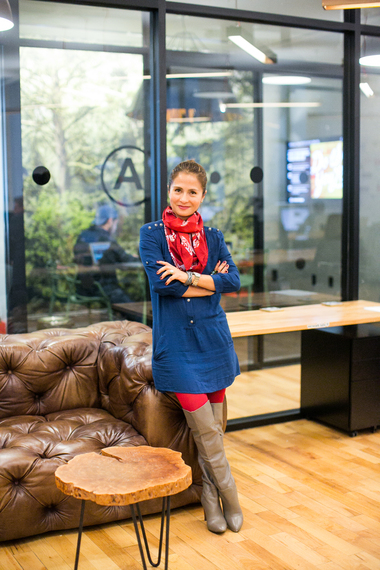By Diana Franco
Whether you like it or not, research shows that your personal image plays a big role in your success in the professional world.
She entered in the conference room in a rush. She was tired; she'd spent a difficult night working on the presentation. She still felt the stress in her shoulders after working so many hours that week. Yet the excitement of having accomplished so much invaded her. She'd done the best she could. She was about to share the efforts of all her hard work. Sure, her hair was messy and she hadn't had time to choose the right outfit for the occasion but did that matter? Her content was perfect and all her documents were in the right place. Worrying about how she looked was just vanity, wasn't it?
Vanity is defined as excessive pride in how you appear. But vanity is not the same as personal image, which refers to an essential part of self-confidence: How do you perceive yourself and how do others perceive you?
Don't make the mistake of saying, "I don't care what people think of me." What people think of you matters a lot, especially if you're an entrepreneur or if you're in the corporate world and your job involves interacting with other people.
The importance of personal image
Numerous studies support the importance of developing a good professional personal image and its effects on your short- and long-term success. Research carried out by the University of Florida between 2005 and 2007 showed that people perceive individuals with a careless personal image as less intelligent, even when that is not true.
That same research showed that individuals with a better personal look not only had access to better jobs but also achieved better job experiences. Such individuals also performed better, probably because people had more and higher expectations of them, and we often unconsciously look to comply with other people's expectations of us. Still more interesting, the research showed that those people with better appearance were more motivated and experienced less stress.
Use the power of personal presentation
Next time you have an important presentation, an appointment with a customer, or a meeting with a board of directors, do yourself a favor: dress well. If you spend 20 hours or more to prepare ideas and materials for that meeting, take two hours to prepare how you will look. Wear neutral colors, make sure your hair and hands are neat, apply makeup discreetly if you use it and consider high heels. (Yes, high heels! Research from the American Psychological Association showed that people associate taller stature with higher income and self-confidence as well as with leadership, authority and strength.)
Don't think this is about being prettier, sexier and more well-dressed or sporting the label of the most famous clothing designer. It's about the professional image you project and how others perceive you.
Nor am I saying that the package is more important than the content. I assume that your content is good and that you have carefully prepared it. The reality is that our entrepreneurial and professional activities are similar to a product, and like every product, are tied to an experience. Personal image is only one of the elements of that experience.
Let's not forget Sheryl Sandberg who, in her book Lean In, invites us to "sit at the table" and be a part of the conversation. Obviously, to sit at the table and be a part of the conversation you must have something valuable to say.
Don't get left out
Poor personal presentation can leave us out of the conversation altogether. It diminishes the likelihood that people will remember us. According to Lois Frankel, PhD., in this economy, not being remembered is not the same as being forgotten. On the contrary, it means being remembered poorly. It leaves a footprint with a negative connotation.
A healthy and attractive personal image encompasses not only how you look, but also body language and nonverbal communication. Amy Cuddy, a professor at Harvard Business School, has performed extensive research on how body language shapes our identity.
Although at first glance the development of a personal image may seem to be a superficial pursuit, nothing could be further from the truth. Even today, seven out of every 10 women are not satisfied with their personal image, according to a research by Dove Foundation.
Gender gaps (machismo, overvaluing of men, undervaluing of women, worse female salaries, abuse of women by men, etc.) still exist at many levels and in many contexts, including entrepreneurial and professional fields. It's not about women being less prepared than men. In fact, today, women graduate in greater numbers than men from master's degree programs and their education levels are increasing.
It's sad but true ‒ image plays a more important role for women than men. Developing a personal and professional image is not a vanity issue but a strategic matter.
As a wise man told me once: "We do not only have to be good at what we do. We also must seem good at what we do." This is an essential lesson for survival.
